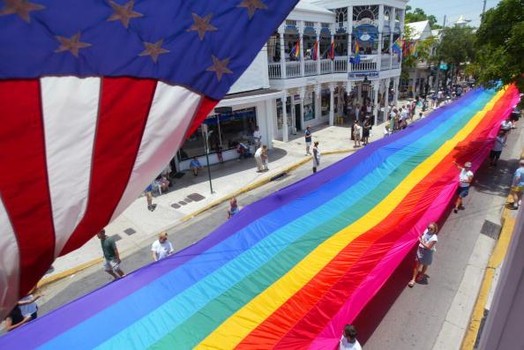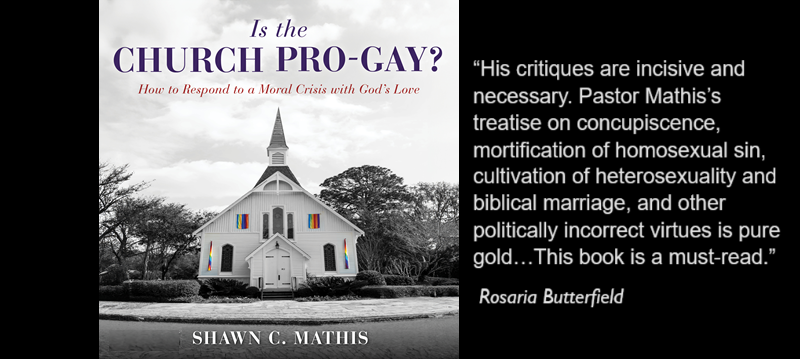
KEY WEST, FL - JUNE 15: Volunteers help stretch the mile and quarter long "World's longest Rainbow Flag" June 15, 2003 from the Gulf of Mexico to the Atlantic coast along Duval street in Key West, Florida. The flag was created for Rainbow 25 and PrideFest Key West. The record setting flag measures 8,000 feet long by 16 feet wide and used more than 14,000 square yards of fabric. (Photo by Joe Raedle/Getty Images)
A recent essay in The Atlantic summarized the quick change in opinion about homosexual unions among church-going Americans. In the article, “The Quiet Gay-Rights Revolution in America’s Churches,” Molly Ball notes the shift in public opinion on gay unions (mislabeled “marriage”) was in part due to the shift in the opinion of the churches over the last ten years.
Quoting from CEO Jones, of the Public Religion Research Institute, she summarized the statistics from his earlier Washington Post article. In 2006, just over a third of Roman Catholics and mainline Protestant churches favored gay unions. And among evangelical Protestants there was about 11 percent support. As of 2013 over half of Roman Catholics and mainline Protestants support this aberration. And 24% of evangelicals support it as well.
Barna numbers from 2003 and 2013 show growing support of the LGBTQ community as a whole. The number of those in favor of changing laws to “enable more freedom for the LGBTQ community” increased across the board. 32% of practicing Protestants agreed while 57% of practicing Roman Catholics support such freedom.
Even with the rise of support in Christian communities, a surprising high percentage of practicing Protestants (70%) still define marriage in a biblical sense. However, those under 40 have more tolerance and reject the traditional definition of marriage.
The upshot of all of this is that legal law has changed to reflect the minds of Americans. In fact, as The Atlantic article argues, the change in the churches appears to have made all the difference. In a twisted fashion, the American church has retained its leaven in society. It is just the wrong leaven.





